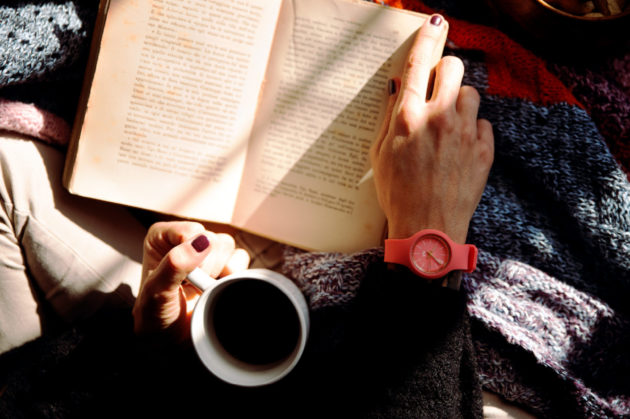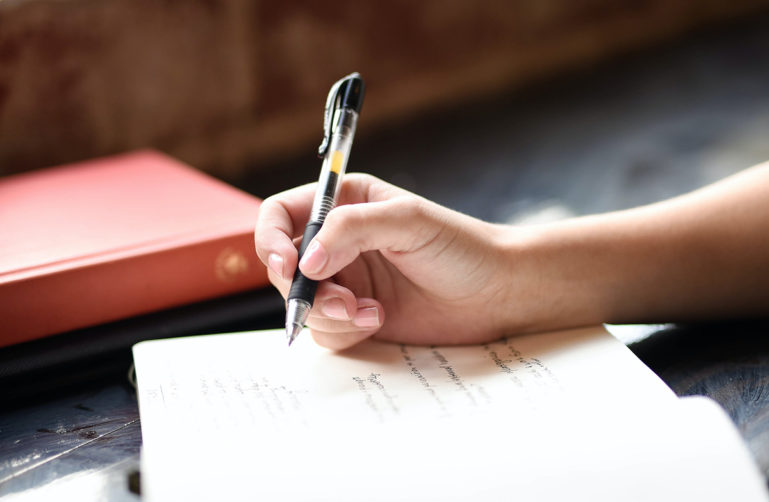Book Club
Looking for your next great read? Join our book groups and get in on thought-provoking discussion in the warm company of the JCCSF community.

Together, we love sharing ideas – so come ready for eye-opening conversations. Book genres and topics vary. All will strengthen your sense of togetherness with others in the JCCSF community in a social and relaxed setting.
Afternoon Book Group
We’re excited to re-start our afternoon book club! The afternoon book group met for over ten years and was on hiatus during the pandemic, but we’re back! The group will continue to read a variety of fiction and nonfiction books chosen by the members.
Interested? Please connect with Shiva Schulz, Director of Lifelong Learning, at [email protected] or call 415.292.1260 to get on the list to join.
2nd Wednesday of the month unless noted • 2:45 – 4:15 pm at JCCSF.
NOTE: Some of the book selections may be new and thus, popular, if you are utilizing the San Francisco Public Library, put in your requests early in case a particular book is waitlisted.
AUGUST 13: JAMES, BY PERCIVAL EVERETT
From Percival Everett-a recipient of the NBCC Lifetime Achievement Award and finalist for the Pulitzer Prize, Booker Prize, and numerous PEN awards-comes James, a retelling of The Adventures of Huckleberry Finn, both harrowing and ferociously funny, told from the enslaved Jim’s point of view. When the enslaved Jim overhears that he is about to be sold to a man in New Orleans, separated from his wife and daughter forever, he decides to hide on nearby Jackson Island until he can formulate a plan. Meanwhile, Huck Finn has faked his own death to escape his violent father, recently returned to town. As all readers of American literature know, thus begins the dangerous and transcendent journey by raft down the Mississippi River toward the elusive and too-often-unreliable promise of the Free States and beyond. While many narrative set pieces of The Adventures of Huckleberry Finn remain in place (floods and storms, stumbling across both unexpected death and unexpected treasure in the myriad stopping points along the river’s banks, encountering the scam artists posing as the Duke and Dauphin…), Jim’s agency, intelligence and compassion are shown in a radically new light.
Notes: The San Francisco Public Library has multiple formats and copies, with the popularity of this book, we suggest reserving your copy early
And consider refreshing your memory by reading/reviewing The Adventures of Huckleberry Finn by Mark Twain prior to reading James.
SEPTEMBER 10: PETS AND THE CITY: TRUE TALES OF A MANHATTAN HOUSE CALL, BY DR. AMY ATTAS
When a pet is sick, people-even the rich and famous-are at their most authentic and vulnerable. They could have a Monet on the wall and an Oscar on the shelf, but if their cat gets a cold, all they want to talk about are snotty noses and sneezing fits. That’s when they call premier in-home veterinarian Dr. Amy Attas. In Pets and the City, Dr. Amy shares all the shocking, heartbreaking, and life-affirming experiences she’s faced throughout her thirty-year career treating the cats and dogs of New Yorkers from Park Avenue to the projects. Some of her stories are about celebs, like the time she saw a famous singer naked (no, her rash was not the same as her puppy’s). Others are about remarkable animals, like the skilled service dog who, after his exam was finished, left the room and returned with a checkbook in his mouth. Every tale in this rollicking, informative, and fun memoir affirms a key truth about animal, and human, nature: Our pets love us because their hearts are pure; we love them because they’re freaking adorable. On some level, we know that by caring for them, we are the best version of ourselves. In short: Our pets make us better people.
Evening Book Group
3rd Tuesday of the month unless noted • 7:30 – 8:30 pm
The Evening Book Club is now meeting in person at the JCCSF. To join the Evening Book Group, please contact Shiva Schulz at [email protected].
JULY 15: A LIVING REMEDY, BY NICOLE CHUNG
Nicole Chung couldn’t hightail it out of her overwhelmingly white Oregon hometown fast enough. As a scholarship student at a private university on the East Coast, no longer the only Korean she knew, she found community and a path to the life she’d long wanted. But the middle class world she begins to raise a family in – where there are big homes, college funds, nice vacations – looks very different from the middle class world she thought she grew up in, where paychecks have to stretch to the end of the week, health insurance is often lacking, and there are no safety nets. When her father dies at only sixty-seven, killed by diabetes and kidney disease, Nicole feels deep grief as well as rage, knowing that years of precarity and lack of access to healthcare contributed to his early death. And then the unthinkable happens – less than a year later, her beloved mother is diagnosed with cancer, and the physical distance between them becomes insurmountable as COVID-19 descends upon the world. Exploring the enduring strength of family bonds in the face of hardship and tragedy, A Living Remedy examines what it takes to reconcile the distance between one life, one home, and another – and sheds needed light on some of the most persistent and grievous inequalities in American society.
AUGUST 19: BALZAC AND THE LITTLE CHINESE SEAMSTRESS: A NOVEL, BY DAI SIJIE AND INA RILKE
Balzac and the Little Chinese Seamstress is an enchanting tale that captures the magic of reading and the wonder of romantic awakening. An immediate international bestseller, it tells the story of two hapless city boys exiled to a remote mountain village for re-education during China’s infamous Cultural Revolution. There the two friends meet the daughter of the local tailor and discover a hidden stash of Western classics in Chinese translation. As they flirt with the seamstress and secretly devour these banned works, the two friends find transit from their grim surroundings to worlds they never imagined.
SEPTEMBER 16: INTERIOR CHINATOWN, BY CHARLES YU
Willis Wu doesn’t perceive himself as the protagonist in his own life: he’s merely Generic Asian Man. Sometimes he gets to be Background Oriental Making a Weird Face or even Disgraced Son, but always he is relegated to a prop. Yet every day, he leaves his tiny room in a Chinatown SRO and enters the Golden Palace restaurant, where Black and White, a procedural cop show, is in perpetual production. He’s a bit player here, too, but he dreams of being Kung Fu Guy—the most respected role that anyone who looks like him can attain. Or is it? After stumbling into the spotlight, Willis finds himself launched into a wider world than he’s ever known, discovering not only the secret history of Chinatown, but the buried legacy of his own family. Infinitely inventive and deeply personal, exploring the themes of pop culture, assimilation, and immigration—Interior Chinatown is Charles Yu’s most moving, daring, and masterful novel yet.
OCTOBER 21: ABSOLUTION, BY ALICE MCDERMOTT
American women―American wives―have been mostly minor characters in the literature of the Vietnam War, but in Absolution they take center stage. Tricia is a shy newlywed, married to a rising attorney on loan to navy intelligence. Charlene is a practiced corporate spouse and mother of three, a beauty and a bully. In Saigon in 1963, the two women form a wary alliance as they balance the era’s mandate to be “helpmeets” to their ambitious husbands with their own inchoate impulse to “do good” for the people of Vietnam.Sixty years later, Charlene’s daughter, spurred by an encounter with an aging Vietnam vet, reaches out to Tricia. Together, they look back at their time in Saigon, taking wry account of that pivotal year and of Charlene’s altruistic machinations, and discovering how their own lives as women on the periphery―of politics, of history, of war, of their husbands’ convictions―have been shaped and burdened by the same sort of unintended consequences that followed America’s tragic interference in Southeast Asia.A virtuosic new novel from Alice McDermott, one of our most observant, most affecting writers, about folly and grace, obligation, sacrifice, and, finally, the quest for absolution in a broken world.
